|
Several
well-funded companies are racing to roll up the domain business,
but few of them enjoy the kind of financial backing iREIT has. JFI
(Jacobson Family Investments), Maveron (the
investment firm held by Starbucks Chairman Howard
Schultz and his partner Dan Levitan) and Perot
Investments have all helped stock iREIT’s war chest.
The
company has become the proverbial 800-pound gorilla that creates
shock waves with every step it takes. Even companies that don’t
compete with iREIT for domains are affected by their impact on the
market. Take pay-per-click companies for instance. When iREIT buys
up 40,000 domains in a quarter, the PPC companies that those names
were originally pointed to have to say goodbye to a large chunk of
change as iREIT redirects their newly acquired domains to their
own direct account with Google.
So
how did this kind of behemoth suddenly appear in our midst? To
find out, we looked at the history of the company’s three
principals (CEO Bob Martin, President Marc Ostrofsky
and Chairman Stuart Rabin) and the events that brought them
together as Internet REIT, Inc.
While
Martin and Rabin are from the financial world and are relatively
late arrivals to this business, Ostrofsky was one of the original
domainers. He started buying names in the mid 90’s and went on
to become a household name in the industry when he sold Business.com
in 1999 in a cash and stock deal reportedly worth $7.5 million.
He had
acquired the domain for $150,000 just two years
earlier.
|
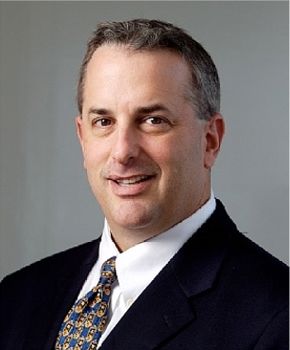
Marc
Ostrofsky
President
Internet REIT, Inc. |
Ostrofsky
grew up in Houston where his dad was a business professor
at the University of Houston. He went on to college
in Austin, graduating with a marketing degree from
the University of Texas. By the early 90’s
Ostrofsky had become a successful magazine publisher and
trade show promoter. His publications focused on the
telecom and high tech industries and included PayPhone
Magazine, Public Communications Magazine,
Telecom Reseller Magazine, Telecom
Business Magazine and Voice Processing
Magazine to name a few of the most profitable
ones. He also got involved with 800 numbers (like 1-800-Flowers)
that used the same kind of “mind share marketing” that
domains are well suited for today.
Ostrosfsky’s
sister Keri introduced him to the Internet in 1994.
After she earned an MBA at Stanford, plus a Masters
and Ph.D. at Harvard, Keri had moved to Austin to
take a position as a research professor at the University
of Texas. When she started telling Marc about the web a
light bulb went off in his head and a few months later he
was immersed in building one of the first domain
portfolios. |
As
a resale market gradually developed for domains, Ostrofsky was
able to sell names like eBusiness.com and eFlowers.com
for a handsome profit. He also had success helping run
domain-based ecommerce businesses, like Blinds.com where he
was a co-owner and board member of a company that had $40
million in annual sales. "The company did that despite
carrying no inventory at all – we simply took orders and had a
third party supplier ship them out," Ostrofsky told us.
Ostrofsky
had enough diversified business interests that he was able to ride
out the “dotcom bust” and subsequent lean years this industry
experienced from 2000-2003. In 2004, when a powerful rebound in
the domain market was just getting underway, Ostrofsky crossed
paths with a business whiz from the northwest Chicago suburbs
named Bob Martin. They met through the Houston
Angel Network, a non-profit organization that connects
angel investors with promising Texas-based companies. Ostrofsky
told Martin about the big opportunity he saw in domains and Martin
liked what he heard. As 2004 came to a close, Ostrofsky and Martin
decided to join forces as founders of Internet REIT, Inc.
|
Ostrofsky’s
admiration for Martin has only grown over the past year
and half. “He works faster and smarter than any
executive I have ever worked with in any of my previous
companies,” Ostrofsky told us. “The guy is truly
amazing and he will help lead Internet REIT into becoming
one of…if not THE largest and most profitable
player in this space. We complement each other...I’m the
entrepreneur and he’s making the deals happen. He is
truly brilliant!”
If
you think Ostrofsky is just being biased, a look at
Martin’s history will quickly dispel that notion. Martin
was literally born for business. His dad was an
entrepreneur and by the time he was in high school, Bob
was already writing business plans. He was an Eagle Scout,
the president of 7 clubs and his high school
valedictorian. “Despite all that I wasn’t smart
enough to get into the domain business back then!,” Martin laughed. |
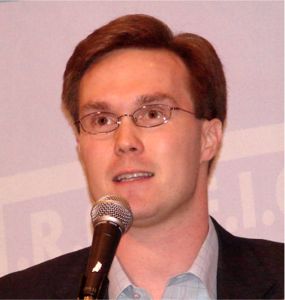
Bob Martin
CEO, Internet REIT, Inc.
speaking at T.R.A.F.F.I.C. West
Conference in Las Vegas (May 2006) |
But
he was smart enough to get into Harvard and industrious enough to
pay his way through school by working up to 60 hours a week. He
even managed to graduate from Harvard early and while he says he
didn’t really learn anything practical there, he formed some
great relationships.
“After
college I got a job with Advent International (a venture
capital firm in Boston),” Martin said. “I learned that
I didn’t want to be a venture capitalist when I found out that entrepreneurs
made all of the money!”. So in 1998, Martin became a director at
Trilogy, an enterprise software company that was doing well
as the original Internet bubble began expanding. “We were giving
away Porsche Boxters on multiple college campuses just to
get resumes!,” Martin recalled. By 2000, the bubble was
deflating, prompting Martin to switch gears again and help start
an investment bank called Jumpstart Partners.
|
At
Jumpstart, Martin worked with Stuart Rabin who
would later become the third partner at iREIT and the two
formed a friendship that continues today. Rabin was born
and grew up in New York City before heading off to Washington,
D.C. to attend Georgetown University. After
graduating with honors, he headed across campus to the Georgetown
Law Center to get a law degree. Rabin practiced in the
nation’s capital and then back in New York before
deciding he wanted to get an MBA degree as well. He
succeeded in doing that at the prestigious Wharton
School of the University of Pennsylvania in Philadelphia.
After
Wharton, Rabin worked at a hedge fund and with two large
financial firms before founding two New York based
companies that he still runs today, Jacobson Family
Investments (JFI) and Nine Thirty Capital. JFI
oversees a substantial portfolio for a single family that
includes a series of public market managers and funds,
direct/private equity investments and real estate
partnerships. Nine Thirty Capital provides investment
advice for other families. |
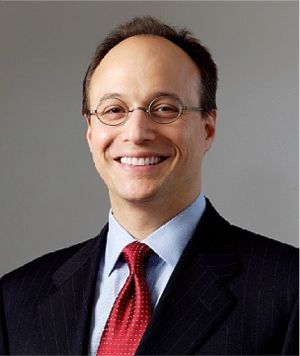
Stuart
Rabin
Chairman, Internet REIT, Inc.
|
In
early 2005, Rabin was at his Manhattan office overlooking
Central Park when his old pal Bob Martin paid a visit to introduce
his new partner, Marc Ostrofsky. “Marc
and I originally put money into iREIT as a side investment
vehicle,” Martin recalls, “but the business turned into
something much more interesting with real potential.” Martin
felt Rabin was the guy who could help unlock that potential.
“Bob
and Marc told me about the idea they had to build a business
focused on the aggregation and development of Internet domain
names,” Rabin said. “I immediately thought that this was a
potentially very exciting business with great opportunity. Our
initial discussion reminded me of the outdoor advertising or
billboard business and the consolidation that took place in that
industry some years ago."
|

|
"In
the outdoor advertising business, there was originally a
very diverse group of “real estate” (billboard)
owners. Eventually, large professional investors came into
the industry and businesses were then built with
professional management and grand ambitions. Portfolios of
outdoor advertising properties were aggregated and then
further consolidation in the industry occurred along with
public offerings and acquisitions. Over time, large
profitable companies were acquired and/or built.” |
“In
speaking with Bob and Marc it seemed to me that all of this and
perhaps more was possible in the domain name business, given the
attributes of the on-line advertising economy - or what I like to
call the “Google ecosystem,” Rabin said. “The growth
dynamics for on-line ad spending are spectacular and the
“real estate” or advertising space (the quality venues for
advertising on-line) is a relatively scarce commodity."
"It
also occurred to the three of us that no one was really doing what
we thought was possible in the industry, in a professional and
focused way. We knew that there would be others to “get
it” eventually, but that we also had a relative head-start in
putting together a well-organized and hopefully world class
company in this large and fast growing market. Overall, we saw
great industry fundamentals and saw that the industry was still
early in the process of consolidation. We also believed that
we collectively had the necessary ingredients to build iREIT into
something very special," Rabin said.
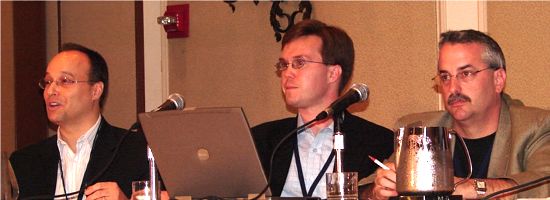
Left
to right: Stuart Rabin, Bob Martin & Marc Ostrofsky
conducting a seminar at T.R.A.F.F.I.C. East 2005 in
Delray Beach, Florida
“I
did some real research into the economic model for on-line
advertising, into the industry dynamics generally, and the
specifics of the domain name and direct navigation world. I then
got quite comfortable with the asset class, the risks, and the
industry,” Rabin added.
Rabin
is technically not a company executive and he is not employed by
iREIT. His role is to be a very active board member and a
close advisor and partner to the team and to the company in
general. Rabin’s investment group, JFI, agreed to provide much
of the initial funding for iREIT if Martin would leave Jumpstart
and work as the full time CEO of the new venture. Martin agreed
and the trio was on their way.
| Ostrosky
said, “Collectively the three of us refined the business
plan and concepts and worked together to create what iREIT
is today. As the CEO, Bob runs the business. I’m the
visionary, responsible for coming up with new ideas and
for evangelizing for the business by speaking at trade
shows and conferences. As our Chairman, Stuart assists on
strategy, major acquisitions, business issues and
fulfilling our capital needs through JFI directly or by
bringing in strong co-investors and partners.” |
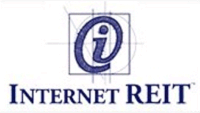
|
Rabin
has certainly upheld his end of the bargain, keeping the iREIT
coffers full of funds from co-investors. “When I called Dan
Levitan at Maveron and Steve Blasnik at Perot Investments
to introduce each of them to the concept behind iREIT they each
“got it” immediately. They saw what I saw originally – a
great concept and a focused effort in an industry ripe for
consolidation and in need of professional management and best
practices. Also, they agreed that there was an opportunity to
continue to build a real company and a world class organization in
an industry where few such businesses existed,” Rabin said.
iREIT’s
original business plan was a simple one. Ostrosky
said, “We felt if
someone could "roll up" this industry - put enough
traffic sources together to be a force in the internet traffic
market, they could have a very good business model and an exceptional
cash flow machine for a long time to come. Internet REIT, Inc.
became just that.”
Martin
agreed, saying the trio’s goals have changed very little with
one exception. “We are more focused now on content
development and development of Internet media properties vs.
simple acquisition of domain names. In June, iREIT announced a partnership
with Associated Content, a leading community of
user-generated content producers, to provide original content for
various iREIT sites including Consulting.com, Netster.com,
HispanoMundo.com, MovieClips.com and VietnamWar.com.
|
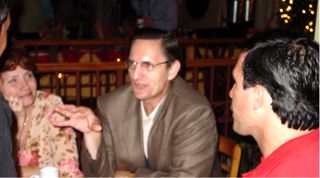
iREIT's
Sid Parfait (in red shirt at far right)
sitting with Ron (center) & Diana
Jackson at
iREIT party in Delray Beach, Florida (Oct. 2005) |
Every
time I ask Martin about the key to iREIT’s success he
says the same thing, “It’s all about getting the best
people. We have great talent at iREIT and we really
like having domainers at the company. We have Sid
Parfait, a domain industry veteran who joined the
company when iREIT acquired his high-value portfolio, and Vince
Claude, an expert in domain systems architecture and
development to name just a couple. Domain industry talent
is a key differentiator for iREIT in an increasingly
crowded and complex market,” Martin said. |
Indeed,
the iREIT leaders seems to be in perpetual personnel recruiting
mode. Rabin said “I encourage anyone reading this article that
might be interested in being at the forefront of the domain
industry, or in partnering with an industry leader as it rapidly
scales towards success, to reach out to Bob or to me to find out
how you can get involved with our very exciting and fast growing
company. We believe that at iREIT we are doing something that will
change the industry for the better and will be very profitable and
rewarding for all of our stakeholders."
| So
far, iREIT’s strategy is meeting with approval from the
financial community. Jordan Rohan, the Managing
Director at RBC Capital Markets, especially likes
iREIT’s new emphasis on content saying “The leading
direct navigation companies are improving the consumer
experience, increasing website functionality, and driving
repeat visitation. iREIT is one of a handful of leaders in
the space, and is making significant investments in its
premium media properties to drive long-term value. iREIT
uses a careful, scientific approach to gauge and optimize
consumer web navigation trends.”
Of
course other heavyweights, like Marchex,
InterSearch Group, NameMedia,
DemandMedia and InternetRealEstate.com are
going down the same path, but Ostrofsky is sure iREIT will
hold their own. “From a competitive standpoint, we
are stronger than most if not all of the players in the
business," Ostrofsky said. |
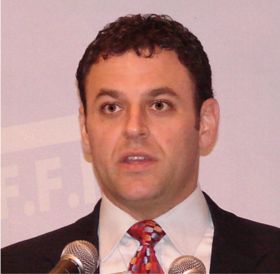
Jordan
Rohan
Managing Director, RBC Capital Markets |
"Our
mission is very specific. We do not get into all sorts of
businesses - we buy, sell, create and build cash flows stemming
from the real estate we purchase from others in the market. Our
management team is very strong and growing weekly. Our tech
team is first rate. Our management is in the market and
understands what domainers want. I believe one of our
strongest assets is the proprietary monetization system that our
team has developed. This allows us to realize value in domains
that may not interest our competitors. For those looking to sell
their portfolio or assets, this means that we are often able to
bid more than other potential buyers.”
Rabin
said, “The industry is certainly big enough for more than
one competitor and also more than one “winner.” iREIT
will stay true to its goals and will stay focused on achieving
success. We are well on our way and we believe our competitive
strengths including a domainer friendly culture, a flexible
company environment, a well-financed organization, a great board
of directors and advisory talent, and excellent team of employees
will all result in a very successful and profitable business for
iREIT.”
|
Rabin
added, “For me personally it has been a great experience
to get to know the domain industry and its many players.
It is a very exciting business with enormous potential.
At iREIT, we are moving very quickly to execute on our
vision. We plan to be one of the winners in the domain
aggregation and monetization arena and we believe there is
enormous upside to the portfolio that we are building,”
Rabin said.
We
would say Rabin’s enthusiasm is contagious, but most of
the people in this business have already caught the
“disease”. Alan Greenspan used to talk
about "irrational exuberance", but when you look
at the forces fueling the domain boom today (see our August
newsletter for examples) we also believe there
is ample reason to be excited about the prospects for the
domain industry in the months and years ahead. |
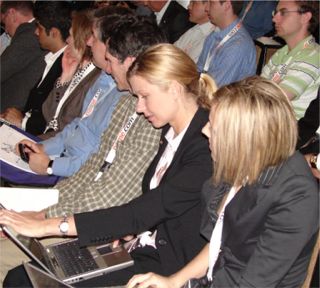
Domain
investors pack a seminar room
at the Domain Roundtable conference
in Seattle (April 2006) |
|

























